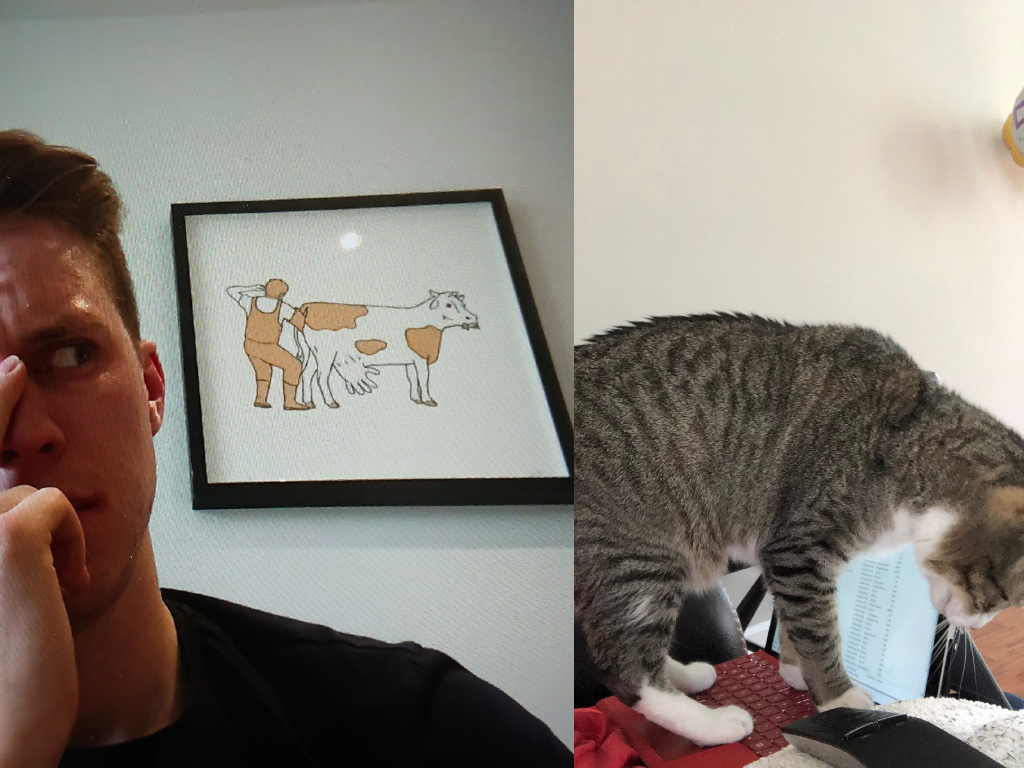At-home blunders are par for the course as employees worldwide transition to working from home during the novel coronavirus outbreak.

As workers learn to adapt to their new norm, they’ve traded in their normal colleagues for furry friends and rambunctious toddlers.
Though tensions are running high, the Twitterverse has taken to sharing hilarious stories of meetings gone wrong thanks to on-air farts, interrupting cats, accidental nudity, questionable wall art and more.
One social media user accidentally told her husband’s entire meeting that she loved them.
Another’s whole family started screaming all at once during a meeting.
One woman accidentally flashed her husband’s four-way video meeting.
And this wasn’t the only person it happened to.
Some people’s feline friends just couldn’t help but get involved in the goings-on of their owners’ days.
One even showed up for a company-wide meeting.
Vanity Fair employee Daniel Taroy said he started having a full-blown conversation with his cat — while his 68-person Zoom meeting was unmuted.
One person’s Google Home chimed in on a question posed during a meeting.
Some couldn’t keep their bodily functions to themselves.
Another tweeted: “Was in a 15 person online meeting, thought I was muted, farted really loudly.”
BBC World reporter Gareth Barlow forgot to temporarily remove some of his more questionable artwork.
One Twitter user’s toddler just couldn’t contain her love for bananas, and just had to share it with an entire meeting.
—
Questions about COVID-19? Here are some things you need to know:
Health officials caution against all international travel. Returning travellers are asked to self-isolate for 14 days in case they develop symptoms and to prevent spreading the virus to others.
Symptoms can include fever, cough and difficulty breathing — very similar to a cold or flu. Some people can develop a more severe illness. People most at risk of this include older adults and people with severe chronic medical conditions like heart, lung or kidney disease. If you develop symptoms, contact public health authorities.
To prevent the virus from spreading, experts recommend frequent handwashing and coughing into your sleeve. They also recommend minimizing contact with others, staying home as much as possible and maintaining a distance of two metres from other people if you go out.
For full COVID-19 coverage from Global News, click here.
—





Comments